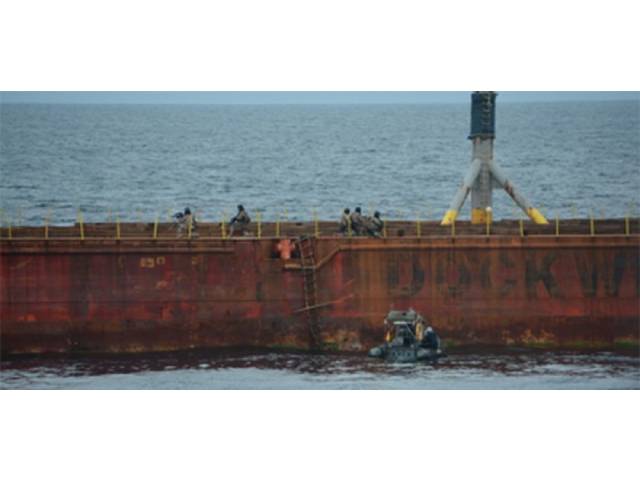
The State of Maritime Piracy 2019 marks the tenth year that One Earth Future Foundation has assessed the human cost of maritime piracy. At the time of writing, the world is in turmoil due to the outbreak of COVID-19. The shipping industry has been impacted in a myriad of ways. Thousands of seafarers, unable to disembark for crew changes, are languishing at sea. With less demand for goods, all vessels have been impacted at times, from oil tankers to container ships. The only thing that does not seem to be affected is the threat of maritime piracy and armed robbery of ships. Kidnapping of crew members continues in the Gulf of Guinea and the Sulu Sea, as does robbery on ships in the Straits of Singapore and Malacca and at anchorages around the world.
In 2019, globally the Gulf of Guinea remained the area worst affected by piracy and armed robbery of ships. Although the number of incidents decreased from 2018, a 60 percent increase in the number of crew members kidnapped was reported in 2019. A total of 164 crew were kidnapped from the wider Gulf of Guinea from as far as Ghana and Gabon and held hostage in the Niger Delta. Crew members were held hostage between two and 84 days.
The hijacking of the Yemeni-flagged fishing dhow Al Azham and the use of the vessel as a mothership in an attack on fishing vessels off the coast of Somalia in April 2019, underlined that piracy off Somalia is suppressed due to enforcement efforts and that a threat remains. Several reported incidents in the Gulf of Aden, off Yemen and Somalia and in the Red Sea cannot be classified as piracy, but are linked to conflict in the region.
Although the number of incidents in Latin America and the Caribbean remained at the same levels in 2019 as in 2018, violent kidnappings off Trinidad and attacks on fishing vessels and yachts off Trinidad, Guyana, and Panama were reported in 2019. All but three incidents against commercial vessels were reported at anchorages.
Kidnapping of fishermen by Abu Sayyaf and groups associated with the organization continued in the Sulu sea and so did kidnappings of fishermen off the Bangladeshi portion of the Sundarbans by criminal gangs. Robbery and attempted robbery of commercial vessels, but especially of tugs towing barges, increased in the Straits of Malacca and Singapore in 2019, with 34 reported incidents.
Read the full report, released on 10 July 2020, and learn more about its findings here.
Source: ISWAN








































